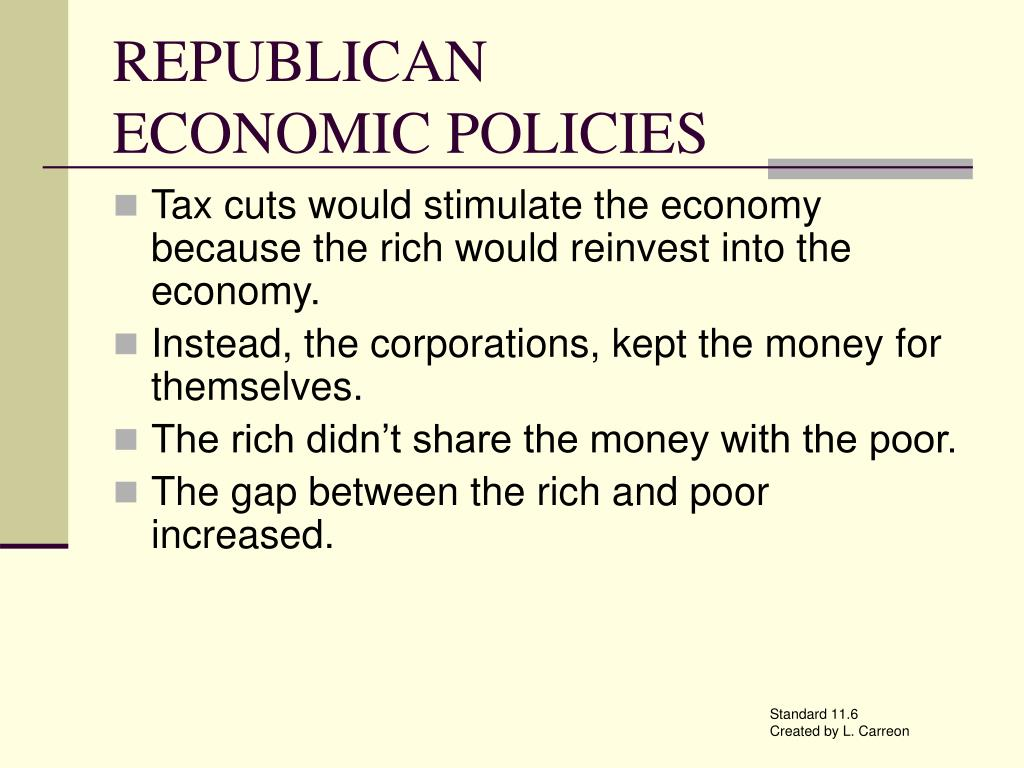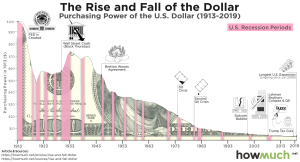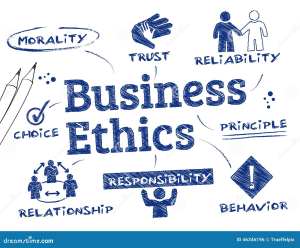Republican economic policy has often sparked debate, particularly concerning its alignment with the principles of GOP economic orthodoxy. Notably, economist Oren Cass highlights that the party’s historical focus on free-market policies has shifted away from its foundational goal of empowering workers and bolstering the economy through a strong labor force. Instead, there has been a relentless pursuit of deregulation and unrestricted trade that has, according to Cass, failed the American household. This conservative economic critique urges policymakers to rethink these long-held beliefs and address the systemic issues that continue to plague the nation’s workforce. As the conversation evolves, there’s a collective recognition within the Republican Party that worker empowerment must regain precedence to foster a truly thriving economy.
The discussion surrounding conservative fiscal strategies, often termed Republican economic policy, reveals a critical examination of traditional frameworks within the GOP. Recent insights from figures like Oren Cass underscore a growing dialogue about the implications of free-market principles on the broader economic landscape. This re-evaluation draws attention to the necessity for labor-centric policies that prioritize the welfare of workers and challenge the conventional free-market dogma that has dominated for decades. By advocating for a balance between conservative economic critique and proactive measures for worker empowerment, the Republican Party is exploring ways to align its economic vision with contemporary challenges. Ultimately, these discussions represent not just a shift in policy but a pivotal moment for the future of the party and American economic health.
The Flaws in Republican Economic Policy
In recent discussions about Republican economic policy, Oren Cass has highlighted substantial flaws in what is often regarded as GOP economic orthodoxy. Historically, the party’s adherence to strictly free-market policies has not translated to prosperity for the average American household. Cass argues that the recent fixation on deregulation and unrestricted trade failed to yield beneficial outcomes, thereby raising important questions about the efficacy of traditional Republican economic strategies. Instead of fostering growth and empowerment among workers, this singular focus has led to stagnation in wages and a widening gap between economic growth and household financial stability.
Furthermore, inspiration from previous Republican presidents reveals that the party has strayed from its roots. Figures such as Abraham Lincoln and Teddy Roosevelt understood the importance of combining market principles with strategic interventions to bolster domestic industries and protect workers. Their deployment of tariffs and trade protections differed significantly from modern interpretations of free-market ideologies that often prioritize efficiency over worker welfare. This shift towards libertarian economic principles has, according to Cass, resulted in a disillusionment for those who believed that true conservatism should involve not just economic growth but human flourishing and family stability.
Reassessing Free-Market Policies
Free-market policies, once championed as the cornerstone of the GOP’s economic approach, have come under fire for their effectiveness and ethical implications. Oren Cass points out an empirical inconsistency in the outcomes produced by these policies. While advocates of the free market argue that deregulation leads to enhanced productivity and economic growth, Cass argues that this has not materialized for most Americans. Instead, workers have found themselves increasingly reliant on government assistance, highlighting a disconnect between free-market thinking and the realities faced by the working class, which is neither sustainable nor beneficial for a thriving economy.
As the landscape of American politics shifts, there is potential for a renewed conversation around free-market policies that incorporate worker empowerment into their framework. The traditional tenets of conservative economic critique emphasize the importance of family stability and domestic investment, alongside the necessity for fair wages. Oren Cass emphasizes that economic policies need to grow beyond the minimalist approach of reducing government intervention; they should instead create the conditions that allow workers to thrive, support their families, and foster long-term economic health.
The Rebirth of Conservative Economic Values
Amid critiques of conventional Republican economic policy, a new wave of conservative thought is emerging, as represented by Oren Cass and other younger policymakers. This group recognizes the failures of the past and is pushing back against the dominant narrative that equates economic success with a blind adherence to free-market policies. By refocusing on the labor market and advocating for the empowerment of workers, they seek to reconstruct the GOP’s economic vision to align more closely with the human-centric values historically associated with conservatism.
The rebirth of conservative economic values emphasizes a marriage between traditional free-market principles and progressive ideas about the labor force. With leaders like Marco Rubio and J.D. Vance acknowledging issues such as wage stagnation and income inequality, there is a growing consensus that a reevaluation of conservative economic strategy is necessary. By advocating for policies that prioritize worker empowerment and social cohesion, this new direction could reshape how the GOP engages with its constituents to create a more robust and inclusive economic platform.
Restructuring the Labor Market for Worker Empowerment
Cass’s focus on worker empowerment aligns with a broader critique of economic libertarianism, which places undue emphasis on consumer choice at the expense of labor dynamics. He argues that the economy should not only be a vehicle for maximizing consumption but also a means of creating robust opportunities for American workers to thrive. This requires an intentional restructuring of the labor market to ensure jobs are plentiful and meaningful, allowing individuals to contribute positively to their communities and forge strong family units.
To genuinely advocate for worker empowerment, it is crucial for policymakers to revisit the relationship between labor and capital. There must be deliberate efforts to enhance worker training, provide fair wages, and create incentives for domestic investment. By fostering an economic environment that prioritizes human dignity and support, rather than merely efficiency or profit maximization, conservatives can redefine their economic outlook to meet contemporary challenges head-on and rebuild the trust of the working class.
Lessons from History: Republican Economic Evolution
An exploration of the economic strategies employed by past Republican administrations reveals a complex history that often contradicts the party’s current rhetoric surrounding neoliberalism and free-market economics. Leaders like Ronald Reagan, who is synonymous with free-market ideology, enacted policies that were more nuanced than often remembered. For instance, Reagan’s implementation of tax increases and trade protections demonstrates that even proponents of deregulation recognized the necessity of safeguarding American industry and workers against economic downturns.
This historical context serves as crucial evidence that Republican economic policy is not fixed; instead, it has evolved significantly based on prevailing economic conditions and societal needs. Cass calls for a return to these more compassionate economic ideologies that prioritize not merely free market principles but also the welfare of American families. By harkening back to the lessons of history, the GOP can initiate a new chapter that resonates with both traditional values and modern economic realities.
A New Economic Consensus: Right and Left Perspectives
The recent acknowledgment by conservative figures like Cass that many issues transcending party lines, such as wage stagnation and job offshoring, can bring together right and left perspectives, speaks volumes about the potential for a bipartisan economic consensus. By identifying common ground on the fundamental challenges facing the American worker, there is an opportunity for collaborative efforts to reform the economy in ways that benefit all citizens. This growing alignment between conservative and progressive spheres could facilitate the introduction of innovative policies aimed at genuinely addressing economic disparities.
Moreover, fostering this new economic discourse can lead to more effective solutions that extend beyond ideological confines. When notable conservative thinkers align their critiques of free-market policies with those on the left, it may establish a platform that encourages fresh ideas and strategies to combat urgent economic issues. The potential for innovative collaborations marks an exciting evolution in economic thought, where the fundamental objective shifts towards human flourishing and building an economy that genuinely serves its people.
The Role of Government in Modern Economics
The question of government intervention in the economy has become increasingly relevant in discussions surrounding contemporary economic policies. Cass emphasizes that the role of government should not be to minimize its presence but to effectively create frameworks that promote human development. This perspective challenges the traditional view held by many libertarians that minimal government intervention leads to optimal economic outcomes. Instead, Cass advocates for a robust partnership between government and market mechanisms to ensure that economic growth translates to real benefits for workers.
This vision of government as a facilitator rather than a hindrance opens up possibilities for policies that could radically reshape American economic life. Programs aimed at supporting families, increasing access to education, and providing job training will empower individuals to succeed within a thriving economy. It illustrates a shift toward a more proactive approach that emphasizes the commonwealth of society, highlighting that a strong economic future relies on both individual initiative and supportive policy frameworks.
Deregulation and Its Discontents: A Conservative Critique
Deregulation, a cornerstone of the GOP’s economic strategy for decades, is under fire for its adverse impacts, particularly on the working class. Oren Cass argues that the favored deregulated market has resulted in adverse outcomes such as job offshoring and stagnation in real wages, which undermine the very fabric of society. By prioritizing free-market principles above all else, Republicans have contributed to an economy that works well for Wall Street but fails to deliver for Main Street.
Cass’s critique serves as a call to revisit the implications of deregulation and advocate for a more balanced, measured approach to economic policy. Instead of viewing deregulation as a panacea for economic problems, there should be a focus on crafting policies that protect workers’ rights and ensure fair competition. By incorporating these elements, the GOP can work toward rectifying past mistakes and forging a path that genuinely serves the interests of all Americans.
The Future of GOP Economic Policy: Hope for Transformation
Looking forward, the future of GOP economic policy holds potential for transformative change. With thought leaders like Oren Cass articulating a vision that integrates worker empowerment with conservative principles, there is hope for reshaping how the party approaches economic issues. This transformation could lead to a revitalized Republican platform that prioritizes the interests of working families and addresses economic inequalities that have been overlooked for decades.
For this shift to take root, the Republican Party must embrace a willingness to abandon outdated orthodoxies and engage in substantive dialogues about modern economic challenges. By integrating a more significant focus on labor issues and drawing on historical precedents, the GOP can redefine its identity in the economic realm, appealing to both traditional constituents and a generation of voters eager for equitable growth and meaningful change.
Frequently Asked Questions
What is the GOP economic orthodoxy and how has it evolved over time?
The GOP economic orthodoxy traditionally emphasizes free-market policies, deregulation, and limited government intervention in the economy. Over time, economists like Oren Cass have critiqued this approach, pointing out that it often neglects key aspects of worker empowerment and the need to strengthen domestic labor forces. Cass argues that historical Republican leaders actually focused more on protecting wages and industries than the current interpretation suggests.
How do free-market policies impact American households according to conservative critiques?
Conservative critics, including Oren Cass, argue that the decades-long focus on free-market policies has resulted in stagnating wages and increasing economic dependency on government support. These policies prioritized cheap goods over worker empowerment, ultimately failing to deliver the economic benefits promised to American households. This critique highlights the need for a shift in focus towards policies that genuinely strengthen the American workforce.
What is Oren Cass’s stance on the relationship between GOP economic policy and worker empowerment?
Oren Cass advocates for a reimagined approach to GOP economic policy that prioritizes worker empowerment over traditional free-market ideologies. He believes that strengthening the labor force and creating family-supporting jobs should take precedence, asserting that previous policies have failed to achieve these goals and have inadvertently harmed American families.
Why do some argue that the Republican economic policy has diverged from traditional conservative values?
Critics, including conservative economist Oren Cass, argue that modern Republican economic policies, often characterized as libertarian or free-market, stray from historical conservative values that emphasized the welfare of the worker and domestic industries. They point to past Republican leaders who employed protective tariffs and focused on building a strong labor force, contrasting this with the deregulation-centric policies that have gained prominence.
What role do tariffs play in the conservative economic critique of current GOP policies?
According to Oren Cass, tariffs have historically been used by Republican presidents to bolster domestic industries and protect workers. The conservative economic critique suggests that the current GOP policies, which largely favor free trade and deregulation, neglect these strategies that could benefit the American labor force and economy.
How have historical Republican presidents differed from the current interpretation of GOP economic orthodoxy?
Historical Republican presidents like Abraham Lincoln and Ronald Reagan employed methods such as tariffs and protective measures to strengthen the domestic economy. Oren Cass argues that these practices contradict today’s GOP economic orthodoxy, which often focuses on deregulation and free-market policies without considering their impact on the workforce and household prosperity.
What potential solutions does Oren Cass propose for improving GOP economic policy?
Oren Cass suggests that GOP economic policy should shift toward empowering workers and supporting family incomes through strategic investments in labor and domestic industries. He believes that policymakers need to create frameworks that strengthen the social fabric and stimulate domestic innovation while still embracing some aspects of the free market.
| Key Point | Details |
|---|---|
| Historical Context | Republican presidents historically have not strictly adhered to what is considered GOP economic orthodoxy. |
| Focus of Policy | Past Republican policies focused on labor force enhancement rather than just deregulation and free trade. |
| Economic Libertarianism | Market fundamentalism, which emphasizes deregulation, arose from a coalition of social conservatives, economic libertarians, and national security advocates. |
| Critique of Libertarian Policies | Oren Cass argues that libertarian policies have not improved conditions for the average working family. |
| Economic Outcomes | Issues such as stagnant wage growth, increasing reliance on government aid, and offshoring were consequences of deregulation. |
| Evolving Consensus | Figures across the political spectrum are beginning to recognize common economic issues affecting American workers. |
| Role of Policymakers | Cass argues policymakers should create rules and institutions that empower workers and strengthen the economy. |
Summary
Republican economic policy has evolved significantly over the years, diverging from a strict adherence to free-market principles. Oren Cass highlights the historical context and critiques the party’s focus on deregulation that has led to stagnant wages and increased reliance on government assistance. This review underscores the necessity for a shift towards policies that enhance worker empowerment and promote domestic investment, steering the Republican agenda towards a more cohesive understanding of economic needs.




